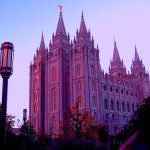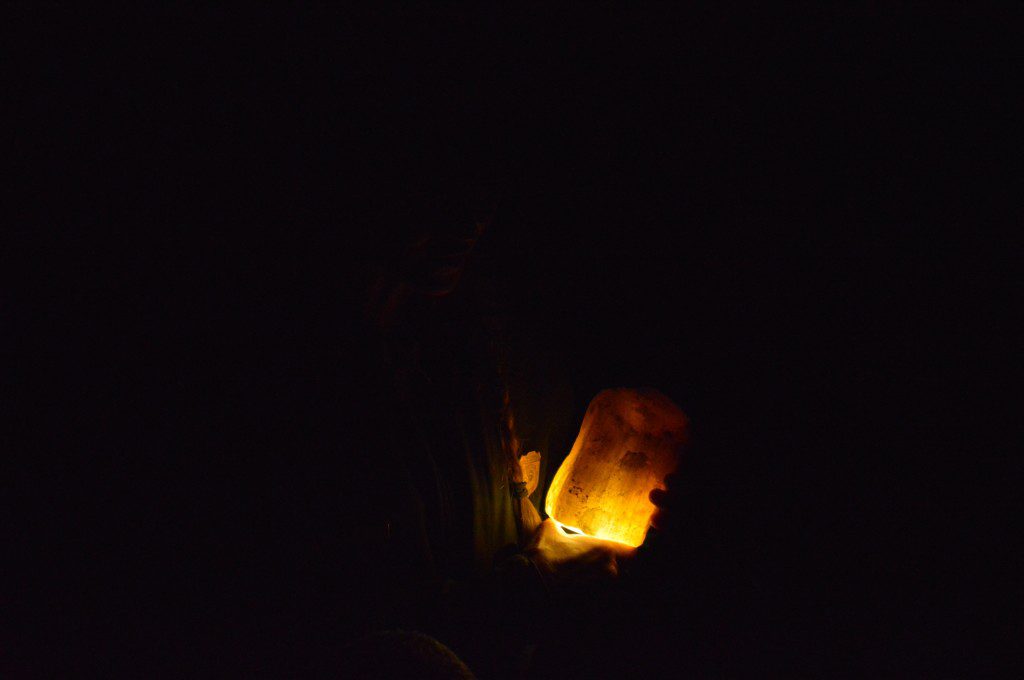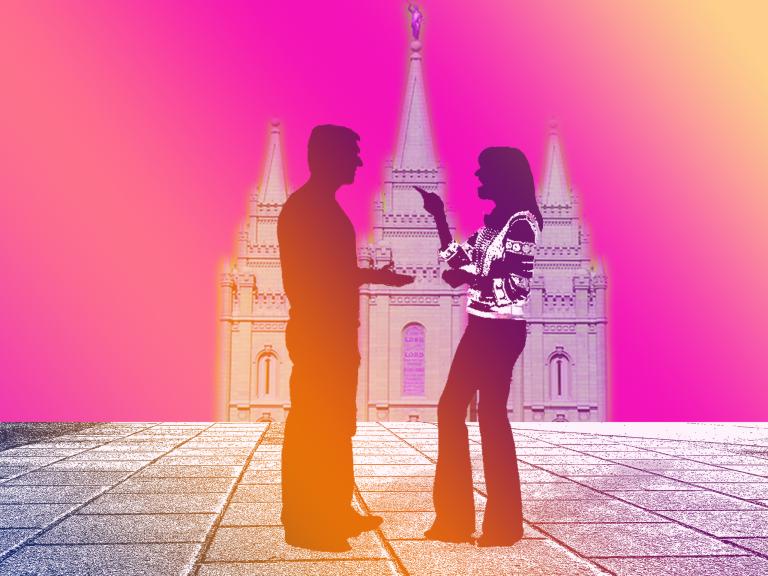The most recent controversy over Mormonism’s practice of posthumous baptism reached its peak in February when it came out that Eli Wiesel, Holocaust survivor and Nobel laureate, had ended up on a to-be-baptized list. Wiesel called on Mitt Romney to condemn the practice of proxy baptisms for Jews, particularly Holocaust victims, echoing complaints made by Jewish leaders in the early nineties. The Church has apologized profusely and maintains that they have made every effort to keep Holocaust victims off of the rolls; the latest cases, officials said, are the consequence of overzealous members ignoring the rules.
The LDS Church performs posthumous baptisms to give the dead the opportunity to accept the faith and be united with their families in eternity, even if they failed to hear or listen to the Mormon message during life. Intense public controversy over the practice goes back more than twenty years and has come from Christian as well as Jewish groups – both the Anglican and Catholic churches have taken steps to restrict LDS access to their historical records, objecting, as a 2008 Vatican letter put it, to the “erroneous practices” of Mormons and seeking to protect “the confidentiality of the faithful.”
Institutional churches and certainly Jewish leaders such as Wiesel have an undisputed prerogative to police the boundary that is crossed by proxy baptism, but our immediate acceptance of this fact has occluded the question of what boundary, exactly, that is. By definition, no one who objects to the practice believes that it has an actual effect on the dead – the Catholic Church and many others do not recognize Mormon baptism as valid for the living, let alone for the dead. Moreover, while the central word in many critics’ objections has been identity – that the Jewish identity, for example, of the dead is impugned when they are posthumously baptized by Mormons – this implies that the practice has a rhetorical power for non-believers that actually seems to be as lacking as the practical. Do non-Mormons really think differently about the baptized dead or believe that a dead person’s rights of self-determination have been meaningfully impugned by being listed on a Church form? If one believes that what happens is that a Mormon gets wet and the eternal adoration of God continues unaffected, or the Universe remains silent, or Grandma goes right on playing checkers with Jesus, why condemn a practice that even critics can recognize as well-intentioned? The answer, I think, is that the objections – like the practice itself – are not really about the dead, but about us, the living.
There are two related factors that motivate both proxy baptism as a practice and the opposition to it, and both of them have everything to do with the living. One is our natural desire to feel that we are doing something for the dead. Like gravesite flowers and memorial funds, asserting the interests of the dead is an act of memory and honor, the “she would have wanted it this way” that lets us continue to feel a connection to those who are gone. This desire for connection animates proxy baptism and the objections to it. A couple of weeks after Wiesel’s statement, reports circulated that Daniel Pearl, the Jewish Wall Street Journal reporter executed in Pakistan in 2001, had been posthumously baptized, and the heartfelt statements of opprobrium from his parents and his widow are moving enactments of this ongoing connection. “He lived as a proud Jew, died as a proud Jew and is currently facing his creator as a Jew, blessed, accepted and redeemed,” Pearl’s parents wrote. “For the record, let it be clear: Danny did not choose to be baptized, nor did his family consent to this un-called-for ritual.”
Such statements are also, though, assertions of authority over Pearl’s memory from the people who knew him best, simple observations that as a member of their family he belongs to them, not to the Mormons in Idaho who baptized him vicariously. This rhetoric of possession is everywhere in the controversy over posthumous baptism. As an Anglican official stated in 1991: “The concern is that the baptism of the dead is an interference with the souls of dead Anglicans which the Mormons want to acquire” (“Church fears Mormon bid to take over dead souls,” The Observer, March 24, 1991; emphasis mine).
The question of staking a claim to the dead is particularly fraught when it comes to those who become fixtures of public memory. Soldiers, victims of disease and violent crime – these dead become our symbols, ways for us to talk about the value of a cause, the consequences of a problem. What they as symbols are likely to mean or are capable of meaning is affected by the way they lived or the way they died, but those meanings are ultimately decided by the living, because all graves are equally silent. Holocaust victims, obviously, fall into this category, and the borders of their memory and their meaning as symbols are forcefully policed, with good reason. In addition to echoing the forced conversions of earlier eras, for Jews proxy baptism appears to be an attempt to make a claim on these most sacred dead. Applauding Mormons’ ready commitment to the 1995 agreement to stop baptizing Holocaust victims, a Canadian rabbi summarized the problem, making these connections and the stakes of possession explicit. “In the classic format of a medieval scenario,” he wrote, “without consultation with their surviving descendants, our martyrs were being posthumously baptized” (Jordan Pearlson, “Involuntary conversion out of style,” The Toronto Star, October 21, 1995; emphasis mine).
The affront found in posthumous baptism is to the belief that the dead belong to us, which is, ironically, precisely the belief that motivates Mormons to practice it – the goal of proxy baptism is to unite you with your dead for eternity. This sense of possession is affirmed in the Church’s official policies, sternly reiterated in the wake of each scandal: “The policy of the Church is that members can request these baptisms only for their own ancestors” – that is, for the dead who belong to you and to whom you will belong.
As not just a non-Mormon but a non-believer altogether, I’m inclined to think that the dead are indifferent to all of this, but not that the stakes are lessened for having more to do with us than with them. For my own part, I freely hope that some LDS friends will remember me in the event of my demise – I don’t expect it to make a difference, but I can’t see any downside to hedging my bets. Like the other dead, I’ll be beyond caring, but the living keep their own counsel.











